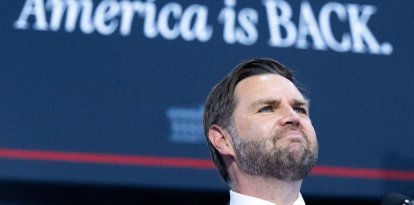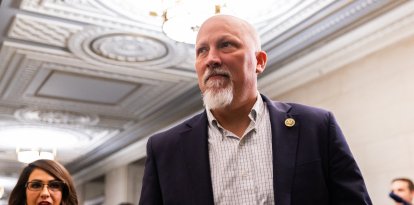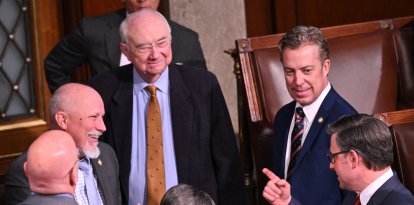Trump proposes tax breaks and tariffs in Detroit to revive auto industry
"I want German car companies to become American car companies. Otherwise, I'd rather not have their cars here," said the former president.

Republican presidential candidate Donald Trump addresses the Detroit Economic Club.
This Thursday, in a speech in front of the Detroit Economic Club, Donald Trump presented his plan to strengthen the U.S. auto industry. Among his main proposals, he highlighted making interest on auto loans fully tax deductible and promised the imposition of tariffs on foreign auto imports.
Trump explained that his proposed full deduction of interest on auto loans would "spur mass production of domestic automobiles" and provide economic support to millions of Americans, making car ownership more affordable for them.
Trade deal renegotiation and focus on tariffs
During his remarks, Trump also pledged to renegotiate the U.S.-Mexico-Canada Agreement(T-MEC), passed in 2020, invoking provisions that allow the treaty to be revised. The goal is to create better conditions for U.S. workers and curb production outsourcing to other countries.
"I want German car companies to become American car companies. I want them to build plants in America. Otherwise, I’d rather not have their cars here," Trump said, making it clear that his priority is to move production to U.S. territory.
The former president also promised to ban autonomous vehicles made in China from driving on U.S. roads if he is re-elected.
Seeking Michigan's support
The speech was part of an effort to capture the backing of voters in Michigan, a key state for the auto industry and where Trump faces a close race with Vice President Kamala Harris. His stance on tariffs, boosting domestic production and tax policies could be determinative for voters in this strategic region.
Other tax proposals
In addition to his focus on the auto industry, Trump has raised several tax initiatives. He proposed eliminating tip taxes for service-sector workers and taxes on Social Security benefits for retirees. He also committed to restoring the full deduction for state and local taxes, reducing the corporate tax to 15% for companies that manufacture products in the United States and eliminating "double taxation" for U.S. citizens living abroad.

























